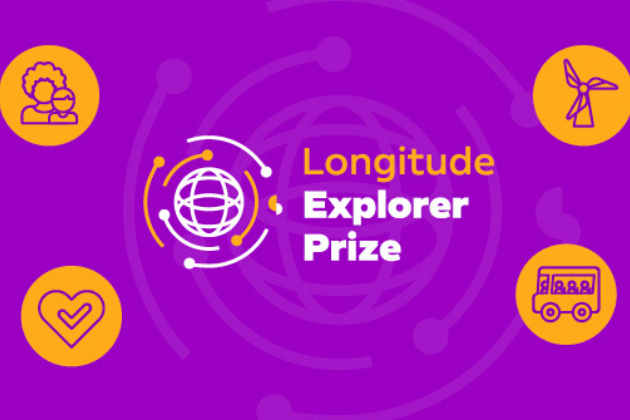Entries open for Longitude Explorer prize
05 November 2019

Longitude Explorer Prize is open to secondary schools and youth groups across the UK, to enter teams of 11-16 year olds with ideas for tech that will help improve the world around them.
What is it?
Nesta Challenges' Longitude Explorer Prize is calling on young people across the UK to develop innovative artificial intelligence (AI) solutions to society’s most pressing problems. The themesthese solutions can fall into are based on the government’s Industrial Strategy Grand Challenges, and are designed to find solutions which help people Live Longer, Live Better, Live Together and Live Greener. The prize offers an exciting opportunity for the winning team to walk away with £25,000 for their school or youth group!
Supported by the Department of Business, Energy and Industrial Strategy, the Longitude Explorer Prize is challenging young people across the UK to come up with innovative concepts which use AI technology for social good. The aim is to stimulate young people's entrepreneurial and future skills and show how they have the power to create impactful solutions by applying STEM (science, technology, engineering and maths) knowledge to innovation.
Why should computing departments get involved?
AI is an important and exciting field which has many obvious links to computing and computer science although it is not explicitly covered in the computing programme of study. The Longitude Explorer Prize provides an opportunity to take part in an extra-curricular activity where knowledge learned in computing lessons can be applied and contextualised. It will allow you to take a broader and deeper approach to relevant topics than during lessons.
Students may call upon knowledge gained from analysing problems in computational terms, algorithm design and programming to tackle the challenge. This will provide a useful platform to explore the ethical and environmental impacts of digital technology. You could link to the use of physical devices such as a wearable tech project using Micro:bits and in collaboration with other subject areas such as Design Technology.
What will a good entry look like?
The challenge is designed to be flexible and therefore projects and prototypes will vary greatly. The winning team of the 2017 Longitude Explorer Prize developed a prototype that helps people with Autistic Spectrum Disorder. It reflects the emotions of its owner, based on a number of sensors that measure stress, heart rate, and speech and tone emotion.
Whatever you produce, students will expand their knowledge on STEM subjects, develop team working skills and improve their understanding of the ever expanding world of AI.
How do I enter?
The Prize is completely free to enter, with free resources available online to kick-start your students’ creative thinking. Additionally, following an exciting Dragon’s Den pitching event in July 2020 - the winning team will win £25,000 for their school or youth group. Finalist teams will receive hardware, software and the support of mentors to turn their idea into a reality. To find out more and to enter visit this website. Entries close 29 November 2019.